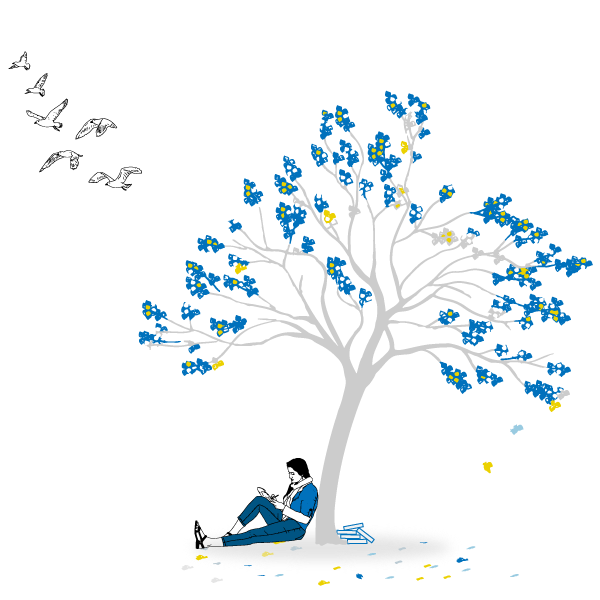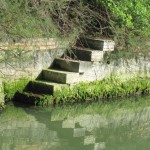Still Sundays
July 18th.
Paradox of stillness. What would Kerouac say about blogging? Antidote to “Anxiety of Influence” is a quote by Alice Walker.
If you would like to know what Still Sundays is about, please take a quick gander here and just read the third paragraph. Thanks.
The Earth is awake. It is definitely not quiet. That doesn’t exactly make for a still Sunday.
I didn’t realize the magnitude of the Earth’s alert energy until this particular visit to my parents’ farm/ranch house in California. When I woke up yesterday morning, Saturday, to the sounds of birds, critters, dogs, tractors, and the light wind rustling against the bright sunlight on tree leaves, I concluded I must take a break from writing Still Sundays because nothing is still!
My curiosity always trumps logical conclusions so I sat with the uncomfortable paradox: I am near middle of nowhere, not a neighbor for half a mile at least, surrounded by lush almond orchids and a variety of trees, and yet there is no quiet stillness! Or was it just my hyper-sensitive senses? I ran errands most of the day Saturday, allowing that thought to centrifuge itself. I told my mother how perplexed I was: no stillness on a farm?! These Still Sundays series began in a mad buzzing New York City—a tribute to the quiet Sunday morning that lends itself to a rare City experience, internal and external. Once I wrote from Philadelphia and was able to catch the stillness there too. But what was going on here?
Finally, an exchange with someone I respect tremendously, Linda Hollier, led me to conclude: the Earth is so much more alive than most of us! We just don’t notice because she moves with a slow grace, missing how spirited she and the ecosystem are!
Stillness is a paradox within: quietness is not at the expense of involvement.
A conversation with author David Weedmark about my manuscript, Her Sizwe, a work-in-progress, led to a small discussion about Jack Kerouac. I had mentioned to David that, as per the advice of this editor who is an established ‘veteran in the publishing industry’, I really needed to finish Her Sizwe or at least have a finished outline of what follows before any effective commentary. Problem being: I am not an outliner. Even in law school I had an unusual way of creating outlines as compared to others. David asked if I had read the edition of Jack Kerouac’s On the Road with a special introduction. I hadn’t. I told David that my style was nothing at all like Jack’s so I don’t know how that would be helpful to me. And although I had read On the Road ages ago, I admit I didn’t know much about Kerouac other than the facts everyone does. But David’s uncanny intuition is on par with mine and he recommended I should at least take a look at it, for I really needed to “take a week, unplug, and just write non-stop” and finish the damn thing.
It so happened that, the following day, the man I sat next to on the plane ride from JFK to LAX was reading that particular edition of On the Road with the “Introduction” I needed to read. I couldn’t believe it. I could believe it.
Jack Kerouac had been struggling for years to invent plots and characters for his “road book” and he was upset by John Clellon Holmes’ direct incorporation of “real life” materials into his novel. Holmes wrote the ‘beat generation’ novel Go. The writing style Kerouac was working with didn’t allow him to express his “reverent mad feelings.” He finally concluded, “I am going to forget all that horseshit. I’m just going to write it as it happened.”
What would Jack Kerouac have to say about the blogosphere? Isn’t everyone just writing as it happened or is happening? Our personal rants, experiences, advices, for everyone to share. Then what is missing? Or is something missing?
Kerouac is known to have finished On the Road–-a hallmark trend in American literature–-in three weeks. What he did in those three weeks was produce a “single-spaced paragraph 120 feet long.” What isn’t known is that he worked on it three years prior to those three weeks and plenty of structural edits followed after those intense three weeks. Prior to these weeks, Kerouac was well aware of and burdened by Harold Bloom’s coinage: “the anxiety of influence.” Bloom attempted to work out the process by which the small minority of ‘strong’ poets manage to create original work in spite of the pressure of influence. Essentially we are influenced by others that precede us. There is no way around it. Even Shakespeare is said to have been influenced by Christopher Marlowe. Then how is original born?
Writing On the Road Kerouac finally found his own voice and his true subject—the story of his own search for a place as an outsider in America.
“I have an irrational lust to set down everything I know,” commented Kerouac. Those who are writing today—fiction or blog posts—can try tapping into their individual “irrational lust” instead of an unconscious (or conscious) “anxiety of influence.” Much uniqueness is lost for the sake of originality.
I posted part of a quote by Alice Walker on twitter knowing it will not get re-tweeted. It is not for everyone. But who am I to conclude that and that’s why I did. I wanted to share it with artist and designer Walt Pascoe. But prior to my bringing this to his attention, low and behold, he had already gotten a hold of that quote and shared it with others. I was right. He got ‘it’.
Here is the full quote. I believe, at least for me, serves as the anti-dote for Bloom’s dilemma of “anxiety of influence.”
To acknowledge our ancestors means we are aware that we did not make ourselves, that the line stretches all the way back, perhaps, to God; or to Gods. We remember them because it is an easy thing to forget: that we are not the first to suffer, rebel, fight, love, and die. The grace with which we embrace life, in spite of the pain, the sorrows, is always a measure of what has gone before. ~ Alice Walker
~a.q.s.
Immense gratitude for the energy of Linda Hollier (she contributes at Integral Life), Walt Pascoe (his website: Walt Pascoe Studio), David Weedmark (his website: Empowering the World Wide You). And last but not least, grateful to the guy who sat next to me (to my left) on the plane ride from JFK to LAX on Thursday, July 15th. He, without speaking, played an integral role in orchestrating the synchronicity which lead me to read Anne Carr’s beautiful, knowledgeable “Introduction” to On the Road. Thank you for letting me borrow it and sorry we didn’t get a chance to speak much. I ended up chatting with another fellow, equally significant, when I was not writing, who I will leave for another Sunday. Thank you, it was a must read for me given where I have been with Her Sizwe and where I am about to go.


There is always more, isn’t there. Ideas beget greater ideas. Love begets greater love. Passion inspires greater passion. And a spoonful of sunshine tossed onto the ground evokes a hidden orchestra of such colour and fragrance, we must wonder how we once called living our lives before such creations were borne. Not sure what Kerouac would have said, but that’s my thought on what you’ve written today.
i lost a friend this morning annie. if i read nothing else today but the walker quote you have offered, i shall have done myself a kindness. thank you
Yes, the earth is so alive… and so not quiet. Yesterday I sat under a Sequoia using a log as my pillow and listened to the wind, ever present. My son heard a wood-pecker and nearly shouted, “What was that?!” I laughed aloud. He shouted his voice and giggled at the echoes. I hear God sounds in rural stillness, in wild stillness.
We are so close now, dear Annie. I look forward to being close enough to hug you!
Harold Bloom is probably the most important critic of the last fifty years. Alice Walker is one of the most insightful novelists of her generation. Ironically, Bloom has never had much good to say about Walker and Walker’s literary career has been, in large part, a reaction to Bloom’s Euro-centrism.
Between the two, navigates Kerouac, the opposite of both Bloom and Walker, insecure and alcoholic and obsessed with capturing the present.
Bloom and Walker are both fixated, or at least well established in their respective traditions (opposing though they be). Kerouac was in practice if not intention, like Whitman, at war with tradition. Kerouac had no time for his ancestors (unlike Walker) and breaks violently from Shakespeare (who is the center of Bloom’s literary universe).
It’s a fascinating triumvirate you’ve put together here, Annie, hardly the stuff of stillness. Nevertheless, you have created a provocative concoction and worthy of more thought.
Amidst busy days I’ve missed reading you…
In “In Search of Our Mothers’ Gardens” Alice Walker treats the matter of looking back at ancestors with such finesse. In the same prose, she also notes ”Anybody can observe the Sabbath, but making it holy surely takes the rest of the week.”
Annie, keep making the sabbath holy with your insights, they push the week forward.
I’ve always appreciated the lack of stillness when standing at water’s edge. The ocean is a constant reminder that while the universe may seem to take an occasional pause, it is as restless and lustful as Kerouac, having no choice by to express itself.